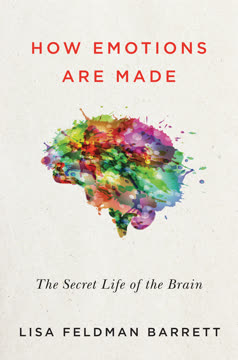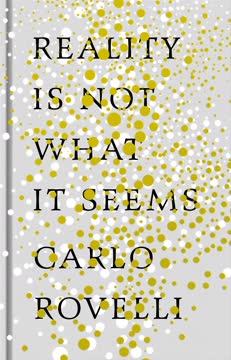つの重要なポイント
1. 真理は道なき土地:自己発見の旅を受け入れる
真理は道なき土地である。人はどんな組織、信条、教義、司祭、儀式、哲学的知識、心理的技術を通じてそれに到達することはできない。
真理は個人的なものである。 各個人は外部の影響や既定の道から解放されて、自分自身で真理を発見しなければならない。この自己発見の旅は独自のものであり、他人によって指示されたり、既存の思考体系を通じて見つけることはできない。
不確実性を受け入れる。 真理の探求には、自分自身の信念や仮定を含めてすべてを疑問視する勇気が必要である。慣れ親しんだものを手放し、未知の領域に踏み出す意欲が求められる。
- 道なき旅の重要な側面:
- 絶え間ない探求と自己反省
- 新しいアイデアや経験に対する開放性
- 長年の信念に挑戦する意欲
- 曖昧さと不確実性の受け入れ
2. 判断せずに観察することで自己と現実を理解する
道に石があり、ロバの蹄がそれに踏み込もうとしているのに気づいたとき、ロバに「石を踏むのは間違っている」とは言わない。ただ石を動かすだけである。
選択のない気づきを実践する。 判断や干渉をせずに観察することで、自己と周囲の世界について深い洞察を得ることができる。この偏りのない認識は、現実をより明確に理解するための手助けとなる。
反応を保留する。 経験をすぐに良い悪い、正しい間違っていると分類するのではなく、そのまま観察する。この非反応的な姿勢は、より深い理解と効果的な行動のための空間を作り出す。
- 判断しない観察の利点:
- 感情的な反応の減少
- 認識の明確さの向上
- 反応するのではなく対応する能力の向上
- 他者への共感と理解の増加
3. 条件付けからの自由は本物の生き方に不可欠である
自由は、日常の存在と活動における選択のない気づきの中に見出される。
条件付けを認識する。 私たちの思考、信念、行動は、育ち、社会、過去の経験によって大きく影響されている。これらの条件付けされたパターンに気づくことが自由への第一歩である。
すべてを疑問視する。 自分の仮定、信念、習慣的な反応を疑問視する。思考と行動の源を批判的に検討することで、無意識の条件付けから解放され、より本物の生き方ができるようになる。
- 条件付けを克服するためのステップ:
- 根深い思考と行動のパターンを特定する
- これらのパターンの起源を調査する
- それらの有効性と現在の生活における有用性を疑問視する
- 新しい思考と行動の方法を意識的に選択する
- 定期的に選択を反省し、調整する
4. 観察者は観察されるものである:分離の幻想を解消する
観察者は観察されるものであり、その認識において既知からの解放がある。
統一を認識する。 観察者(自己)と観察されるもの(世界)の伝統的な分離は幻想である。実際には、私たちの認識と認識の対象は相互に関連し、切り離せないものである。
二元性を超越する。 観察者と観察されるものが一体であることを理解することで、二元的な思考の限界を超えることができる。この視点の変化は、より全体的で統合されたアプローチを可能にする。
- 観察者と観察されるものの統一の影響:
- 内的な葛藤と心理的な分裂の減少
- 他者との共感とつながりの向上
- 自分の認識と行動に対する責任感の増加
- すべてのものの相互関連性を理解する能力の向上
5. 社会的規範に挑戦し、権威を疑問視して真理を見つける
正しい教育とは何かを理解するためには、生きることの全体的な意味を探求しなければならない。
批判的に考える。 伝統的であるから、または広く受け入れられているからといって、アイデアや慣行を受け入れない。自分の生活や社会を形作る信念、システム、権威を絶えず疑問視し、検討する。
独立性を育む。 自分自身で考え、主流に反する結論を出す勇気を持つ。真の理解は、他人に盲目的に従うのではなく、直接的な経験と洞察から生まれる。
- 疑問視し挑戦すべき領域:
- 教育システムと方法
- 宗教的および精神的な教え
- 政治的イデオロギーとシステム
- 社会的規範と期待
- 個人的な信念と価値観
6. 意識を変革し、対立を終わらせるために気づきを育む
世界の変革は、自己の変革によってもたらされる。
自己認識から始める。 自分の思考、感情、行動を深く理解することで、意識を変革し始めることができる。この内的な変化が、世界に意味のある変化をもたらす基盤となる。
内的な対立を終わらせる。 自分の内的な働きに気づくことで、自己内の矛盾や対立を解決することができる。この内的な調和は、自然に他者との関係や世界との相互作用に広がる。
- 気づきを育むための実践:
- 定期的な自己反省と内省
- 日常活動におけるマインドフルネス
- 判断せずに思考や感情を観察する
- 自分の信念や行動の根源を探る
- 内的および外的な微細な変化に対する感受性を育む
7. 理解から生まれる愛と慈悲は執着からではない
愛は執着ではない。執着は自由を破壊し、自由がなければ愛は存在しない。
理解を育む。 真の愛と慈悲は、自己と他者に対する深い理解から生まれるものであり、感情的な依存や執着からではない。この理解は、喪失の恐れや支配の必要性なしに、真のつながりを可能にする。
期待を手放す。 執着はしばしば、他者が自分のニーズを満たすことを期待することから生じる。これらの期待を手放すことで、相互理解と尊重に基づく本物の関係のための空間が生まれる。
- 理解に基づく愛の特徴:
- 他者をそのまま無条件に受け入れる
- 両者が成長し変化する自由
- 所有欲や嫉妬の欠如
- 絡み合わずに支援する能力
- 個人的な関係を超えてすべての存在に広がる慈悲
8. 瞑想は思考なしで現在に生きる技術である
瞑想は手段ではなく、手段であり同時に目的である。
現在を受け入れる。 真の瞑想は技術や実践ではなく、現在の瞬間に完全に気づいている状態である。それは、思考や判断の干渉なしに、人生が展開するままに完全に注意を向けることを含む。
思考を超越する。 思考は実用的な問題においては役立つが、絶え間ない精神的な雑音はしばしば現実の直接的な経験を曇らせる。瞑想は、思考の限界を超えて、より完全に人生を経験することを可能にする。
- 瞑想的な生活の側面:
- 感覚の鋭敏さの向上
- 精神的なコメントや分析の減少
- 人生に対する自発的な対応能力の向上
- 平和と満足感の増加
- 創造性と直感の向上
9. 真の革命は個人の変革から始まる
危機は私たち自身の中にあり、世界の中にあるのではない。世界は私たち自身の投影であり、世界を理解するためには自己を理解しなければならない。
内からの変化。 持続的な社会変革は、個人の変革を通じてのみ実現することができる。自分自身の内的な葛藤、偏見、限界に対処することで、社会全体の変革に貢献する。
責任を取る。 外部の解決策を待ったり、他人を非難するのではなく、自分自身の意識とその世界への影響に責任を持つことを認識する。これにより、ポジティブな変化の担い手となることができる。
- 個人の変革のためのステップ:
- 自己認識を深め、自分のパターンを理解する
- 自分の信念や仮定を疑問視し挑戦する
- 自分と他者に対する慈悲を育む
- 理解に基づいて行動し、行動を一致させる
- 洞察を共有し、他者が自分の意識を探求することを奨励する
10. 教育は単なる従順ではなく、全体的な成長を促進すべきである
教育の最高の機能は、人生全体に対処できる統合された個人を育成することである。
全体性を促進する。 真の教育は、知的、感情的、身体的、精神的なすべての側面を育むべきである。それは、単なる暗記や従順ではなく、創造性、批判的思考、自己理解を奨励するものであるべきである。
知性を育む。 教育は、独立して考え、仮定を疑問視し、新しい状況に適応する能力を発展させることに焦点を当てるべきである。この知性は、学問的な知識を超えて、感情的および実践的な知恵を含む。
- 全体的な教育の重要な要素:
- 好奇心と独立した探求を奨励する
- 創造性と自己表現を育む
- 感情的知性と共感を発展させる
- 実生活のスキルと問題解決能力を教える
- 自然と社会へのつながりの感覚を育む
11. 関係は自己理解と成長の鏡である
関係は、私たちが自分自身をありのままに見ることができる鏡である。
関係を教師として受け入れる。 他者との相互作用は、私たちの隠れた思考、感情、行動パターンを明らかにする。それらの反映に注意を払うことで、自己について貴重な洞察を得ることができる。
関係における気づきを育む。 他者を変えようとしたり、困難な相互作用から逃げるのではなく、関係を自己発見と成長の機会として活用する。このアプローチは、対立を個人の発展の触媒に変えることができる。
- 関係から学ぶ方法:
- 相互作用における自分の反応やトリガーを観察する
- 関係のパターンを反省する
- 積極的な傾聴と共感を実践する
- 対立や誤解の根源を探る
- 意見の相違を自己検証の機会として活用する
最終更新日:
FAQ
What's Total Freedom: The Essential Krishnamurti about?
- Exploration of Existence: The book delves into the nature of human existence, focusing on self-awareness and the dissolution of conditioning as paths to true freedom.
- Rejection of Authority: Krishnamurti emphasizes the importance of personal exploration over reliance on external authorities or ideologies.
- Pathless Truth: It presents the idea that "Truth is a pathless land," meaning there is no single path to truth; each person must discover their own understanding.
Why should I read Total Freedom: The Essential Krishnamurti?
- Timeless Wisdom: Krishnamurti's insights are relevant across cultures and eras, addressing universal human concerns.
- Encourages Self-Discovery: The book invites readers to embark on a journey of self-exploration, fostering a deeper understanding of their thoughts and emotions.
- Challenges Conventional Thinking: It provokes thought and inspires change by challenging assumptions about life, society, and spirituality.
What are the key takeaways of Total Freedom: The Essential Krishnamurti?
- Self-Awareness is Crucial: Understanding oneself is the foundation for true freedom, leading to liberation from societal conditioning.
- Illusion of Time: Psychological time affects our perception of life; true understanding transcends time.
- Freedom from Conditioning: Breaking free from societal and personal conditioning is essential for personal responsibility and transformation.
What are the best quotes from Total Freedom: The Essential Krishnamurti and what do they mean?
- “Truth is a pathless land.”: Emphasizes personal exploration over following established doctrines to discover truth.
- “The moment you follow someone you cease to follow Truth.”: Highlights the importance of personal exploration over blind adherence to authority.
- “When the mind is still, tranquil... there can be a regeneration.”: Suggests that clarity and insight arise from stillness rather than constant mental activity.
How does Krishnamurti define freedom in Total Freedom: The Essential Krishnamurti?
- Freedom from Fear: True freedom is the absence of fear, which is a major barrier to understanding oneself.
- Self-Liberation: Freedom is achieved through self-awareness and understanding, not granted by external circumstances.
- Beyond Ideals: Transcending societal ideals and conditioning is necessary for true understanding.
What role does fear play in Total Freedom: The Essential Krishnamurti?
- Fear as a Limiting Factor: Fear restricts human potential and understanding, perpetuating itself through avoidance.
- Fear and Self-Pity: Dwelling on fears leads to a cycle of sorrow; confronting fear directly is essential.
- Overcoming Fear: Observing fears without judgment can lead to liberation from their grip.
How does Krishnamurti view the relationship between the individual and society in Total Freedom: The Essential Krishnamurti?
- Interconnectedness: The individual and society are deeply interconnected; societal issues stem from individual actions.
- Responsibility of the Individual: Societal change begins with personal transformation and responsibility.
- Critique of Ideals: Reliance on collective ideals often leads to conflict; understanding society comes from understanding oneself.
What is the significance of self-awareness in Total Freedom: The Essential Krishnamurti?
- Foundation for Understanding: Self-awareness is essential for personal growth and understanding.
- Awareness of Conditioning: Recognizing one’s conditioning is the first step toward transformation.
- Path to Freedom: Self-awareness leads to freedom from fear and societal constraints.
How does Krishnamurti suggest we approach education in Total Freedom: The Essential Krishnamurti?
- Holistic Development: Education should foster total development, not just academic achievement.
- Freedom from Authority: Traditional education promotes conformity; independent thought is crucial.
- Encouraging Inquiry: Education should encourage inquiry and self-discovery rather than rote learning.
How does Total Freedom: The Essential Krishnamurti address the concept of love?
- Love Beyond Attachment: True love is free from possessiveness and desire.
- Love as Compassion: Love is a state of compassion that arises when one is free from fear and sorrow.
- Love Requires Freedom: Love flourishes in an environment of psychological freedom.
What is Krishnamurti's view on meditation in Total Freedom: The Essential Krishnamurti?
- Meditation as Awareness: True meditation is about cultivating awareness, not following a system.
- Silence and Attention: A quiet mind is necessary for genuine meditation and deeper observation.
- Freedom from Control: True meditation arises naturally from awareness, not forced practice.
How can one apply the teachings of Total Freedom: The Essential Krishnamurti in daily life?
- Practice Self-Inquiry: Regular self-inquiry helps understand thoughts, emotions, and conditioning.
- Cultivate Awareness: Develop awareness of reactions and responses in daily interactions.
- Embrace the Present Moment: Focus on living fully in the present, letting go of past conditioning and future expectations.
レビュー
本書『Total Freedom』は、J. クリシュナムルティによる意識、自由、自己認識に関する洞察が高く評価されている。読者はクリシュナムルティの直接的なアプローチと挑戦的なアイデアを称賛しているが、一部の人々は内容が繰り返しであったり、理解しにくいと感じることもある。本書は個人の成長と理解のための強力なツールと見なされており、読者に信念を問い直し、批判的に考えることを促している。多くのレビューアーは本書を変革的だと感じているが、少数の批評家はクリシュナムルティのアイデアが独創性や実用性に欠けると主張している。
Similar Books























